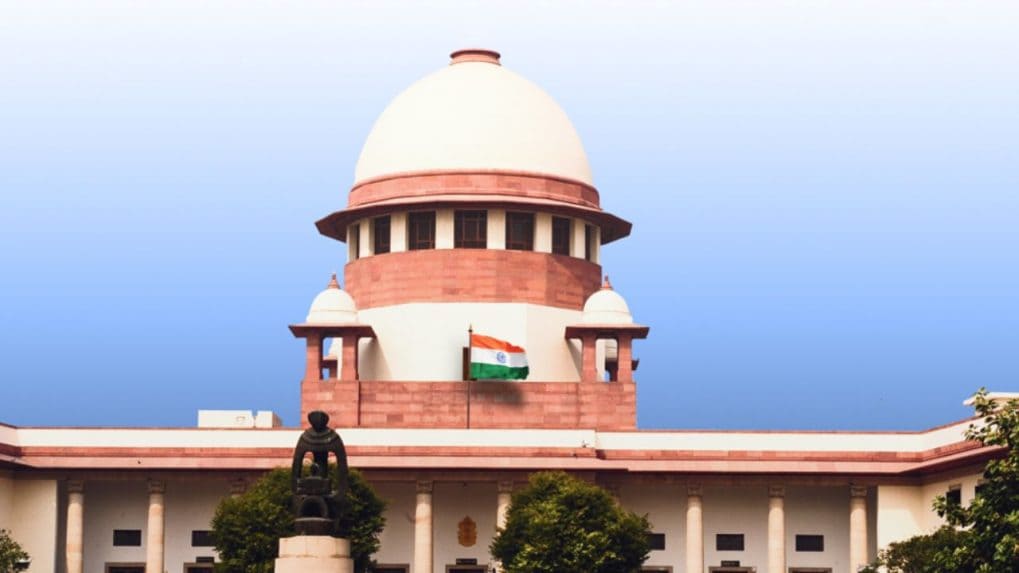How it Works
WPP, Havas, Omnicom: Are advertising’s biggest holdcos recasting agencies as AI Operating Systems?

On Thursday, the Karnataka government before the Supreme Court defending its legislative authority to regulate online gaming, stressed that the State is constitutionally empowered to curb the growing public health and social concerns linked to gambling addiction among youth.
Appearing on behalf of the State, Additional Advocate General Prateek K. Chadha submitted comprehensive written arguments countering the Karnataka High Court’s earlier verdict that had struck down key provisions of the Karnataka Police (Amendment) Act, 2021, terming them unconstitutional.
Not a Taxation Matter — A Public Policy Issue
In contrast to other online gaming cases currently pending before the Court — many of which revolve around taxation issues — Karnataka’s defense squarely rests on public policy concerns. The 2021 Amendment Act was introduced to tackle the social and economic harms of online gambling, particularly among young players.
"The amendment is not an outright prohibition on online gaming," Chadha clarified. "It only regulates games where money is risked on unknown outcomes — whether games of skill or chance.”
The law expanded the definitions of terms such as “gaming,” “common gaming house,” and “instruments of gaming” to bring online games played for monetary stakes within its purview.
Chadha argued that Karnataka has the authority to legislate on the matter under multiple entries of the State List (List II) of the Constitution’s Seventh Schedule, specifically citing Entries 34 (Betting and gambling), 33 (Sports, entertainment and amusements), 1 (Public order), 2 (Police), 6 (Public health), and 26 (Trade and commerce).
Quoting a landmark nine-judge Bench ruling in Mineral Area Development Authority v. SAIL, Chadha noted that legislative entries should be interpreted liberally. “Even if the law overlaps with several entries, the competence exists as long as the core subject falls within State jurisdiction,” he submitted.
The State emphasized that the threats posed by online gaming are of a fundamentally different nature than traditional offline gambling. “Players operate under a veil of ignorance — they can’t tell if they’re competing against other players, bots, or AI-powered tools,” the State argued. “The scope for addiction and financial loss is exponentially higher online.”
Karnataka cited the Law Commission’s 276th report and other studies to highlight rising cases of gambling-related suicides, addiction, and loan frauds. The State pointed to disturbing instances of minors and economically disadvantaged youth borrowing money to play high-stakes fantasy games.
“Online gaming is fueling a public health emergency,” Chadha warned. “The State must be empowered to act before we lose more youth to addiction and debt traps.”
A key pillar of the State’s argument was that Article 19(1)(g) — which guarantees the right to practice any profession or carry on any trade — cannot be invoked by companies or societies, most of whom are the petitioners in the case.
“In light of the above, it is submitted that Respondent body-corporates cannot invoke fundamental rights under Part III of the Constitution to protect their business interests at the expense of the larger sections of society,” the State argued in its filing. “They cannot legally preserve a right to impoverish the vulnerable young generation who easily fall prey to addictive gambling.”
Even if the right to trade was applicable, Karnataka contended that the 2021 Amendment qualifies as a “reasonable restriction” under Article 19(6) of the Constitution, made in the interest of public welfare. The law targets only online games involving monetary betting and does not apply to casual or skill-based games played without stakes — such as chess, carrom, or free-to-play fantasy leagues.
The State further submitted by urging the Court to consider the broader public interest and align its decision with the Directive Principles of State Policy. “The Court has to try to strike a just balance between the fundamental rights and the larger interest of the society. The Constitution is primarily for the common man,” it said.
Karnataka underscored that its objective was not to ban online games but to regulate exploitative betting practices that disproportionately affect students and vulnerable communities. “Larger interest and welfare of the student community to promote merit, achieve excellence and curb malpractices... can certainly be regulated,” the filing added.
From purpose-driven work and narrative-rich brand films to AI-enabled ideas and creator-led collaborations, the awards reflect the full spectrum of modern creativity.
Read MoreThe Storyboard18 Awards for Creativity have unveiled a Grand Jury comprising some of India’s most influential leaders across advertising, business, policy and culture, positioning it among the country’s most prestigious creative award platforms.